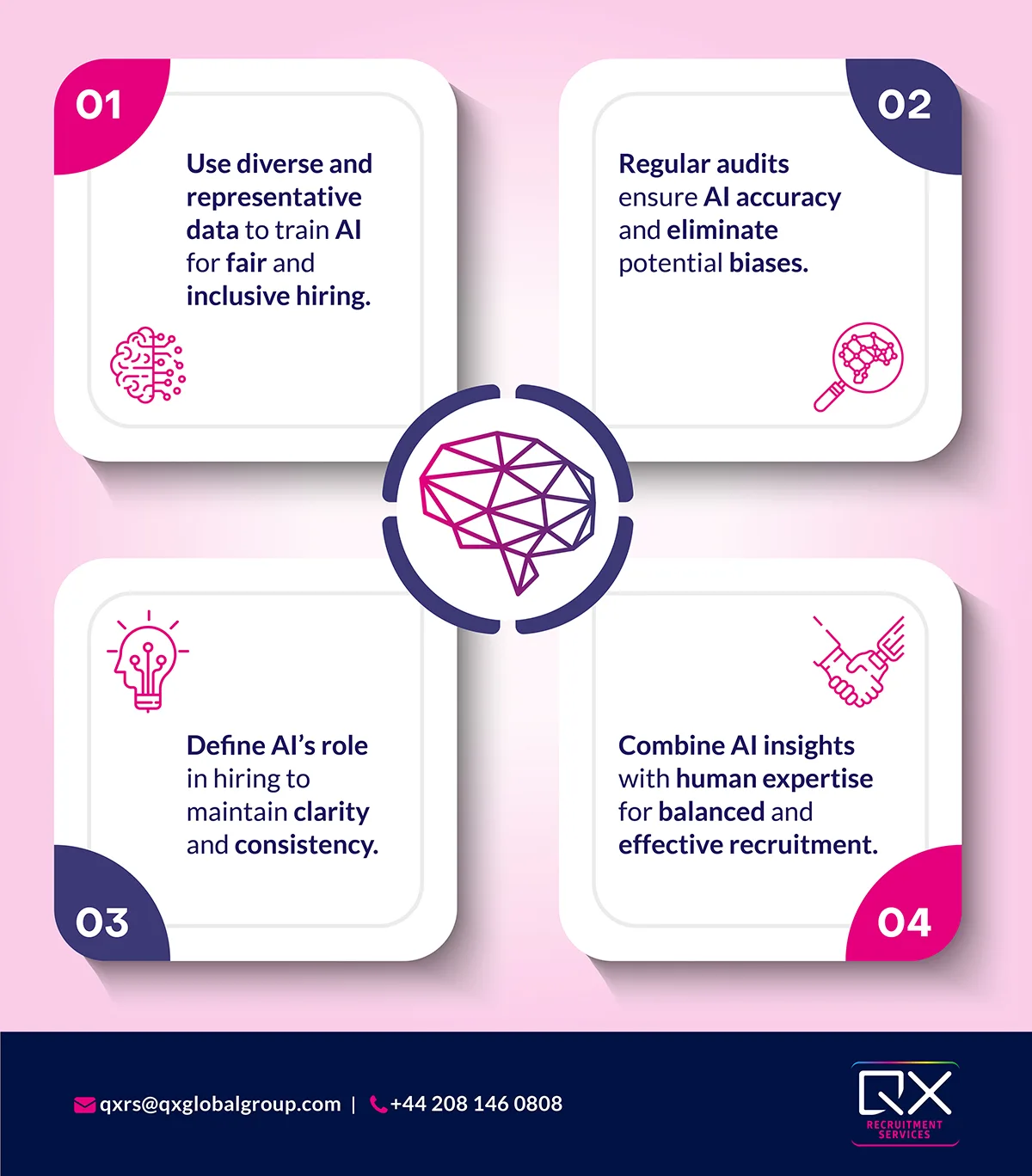Topics: AI & Automation in Staffing, AI Automation, AI in Recruitment, Legal Risks of AI and Automation in Recruitment
The Hidden Legal Risks of AI and Automation in Recruitment
Posted on November 25, 2024
Written By Ranjana Singh

Key Takeaways
- 79% of organizations use AI to enhance efficiency and accuracy in hiring processes.
- Major risks include bias, privacy concerns, and compliance with federal and state healthcare recruitment laws.
- Regular audits, clear ethical guidelines, and balancing AI with human judgment can mitigate risks.
How AI & Automation is Used in Recruitment
AI & Automation in recruitment process has transformed how staffing firms operate. According to the Society for Human Resource Management (SHRM), 79% of organizations leverage automation in recruitment processes. Here’s how staffing firms are applying AI:
- Crafting job descriptions tailored to position requirements.
- Optimizing recruitment marketing through programmatic job advertising.
- Screening applications and resumes for quicker sorting.
- Providing candidates with real-time answers and updates via chatbots.
- Delivering personalized feedback to candidates throughout the hiring journey.
Despite its advantages, the legal risks of AI and automation in recruitment and ethical challenges require careful attention.
What Are the Legal Risks of Using AI & Automation in Hiring?
1. Potential for Discrimination
AI and automation in staffing relies heavily on historical data, which can perpetuate biases. Violations of laws like Title VII of the Civil Rights Act and the Americans with Disabilities Act (ADA) may occur.
Disparate impact cases, such as the Griggs v. Duke Power Co. ruling, highlight the risks of unintentional discrimination. Biased algorithms may unknowingly disadvantage certain demographic groups.
2. Compliance with State and Local Regulations
Several jurisdictions have implemented AI regulations in healthcare recruitment:
- Illinois, Maryland, and New York City have introduced specific laws governing AI in recruitment processes.
- Colorado’s forthcoming AI hiring law (effective February 2026) will set additional requirements.
3. Data Privacy and Security
Handling sensitive candidate data brings risks:
- Compliance with HIPAA for protecting health data.
- Adherence to GDPR, requiring explicit consent for data collection and usage.
- Firms must secure candidate data privacy and provide transparency regarding data use.
4. Transparency in AI Decision-Making
AI often acts as a “black box,” making recruitment decisions difficult to justify. Transparency in AI is vital for compliance with laws and fostering candidate trust.
Tips to Manage Legal Risks and Ethical Concerns in AI Recruitment

1. Utilize Diverse and Unbiased Training Data
To reduce risks, train AI models with diverse and representative datasets, avoiding historical biases. This ensures ethical AI in recruitment and promotes inclusive hiring.
2. Conduct Regular Audits of AI Systems
Frequent audits are essential for:
- Identifying overrepresentation or underrepresentation of demographics.
- Detecting errors in data collection.
- Ensuring compliance with healthcare recruitment laws.
3. Establish Clear Ethical Guidelines
Define the role of AI in healthcare staffing with guidelines covering:
- Ethical goals and transparency in AI usage.
- Audit practices and communication protocols.’
- Candidate awareness of AI in the recruitment process.
4. Balance AI with Human Judgment
A combination of AI insights and human expertise ensures fairness. Recruitment professionals must remain actively involved to avoid over-reliance on automation.
Conclusion
AI is reshaping the automation in recruitment process, offering unparalleled efficiency. However, addressing the legal implications of AI in healthcare recruitment is crucial for maintaining compliance and building trust. By adopting regular audits, transparent practices, and ethical frameworks, healthcare staffing firms can navigate risks effectively.
At QX Global Group, we blend automation with human expertise to help staffing firms achieve 10X ROI and reduce costs by 50%. Get started today!
Frequently Asked Questions (FAQs)
1. How can firms mitigate legal risks associated with automated decision-making in recruitment?
Firms can mitigate risks by auditing AI systems regularly, using unbiased datasets, and establishing clear ethical guidelines for AI usage.
2. What role do transparency and explainability play in the legal use of AI in recruitment?
Transparency ensures compliance with laws requiring justification for recruitment decisions and builds trust with candidates by explaining how AI impacts outcomes.
3. How can healthcare recruitment firms stay updated on evolving AI regulations and compliance requirements?
Firms should subscribe to legal updates, attend industry seminars, and collaborate with compliance experts to stay informed about AI regulations in healthcare.
4. How can healthcare recruitment firms ensure compliance with employment laws when using AI?
By aligning AI practices with federal laws like Title VII, state regulations, and privacy laws such as HIPAA and GDPR, while maintaining robust oversight and accountability.
Book a Free Consultation
Enjoyed our blog? Discover more about how our recruitment outsourcing process can slash your costs by up to 60%! Take the next step—book a call by entering your details.
Originally published Nov 25, 2024 11:11:59, updated Dec 13 2024
Topics: AI & Automation in Staffing, AI Automation, AI in Recruitment, Legal Risks of AI and Automation in Recruitment







